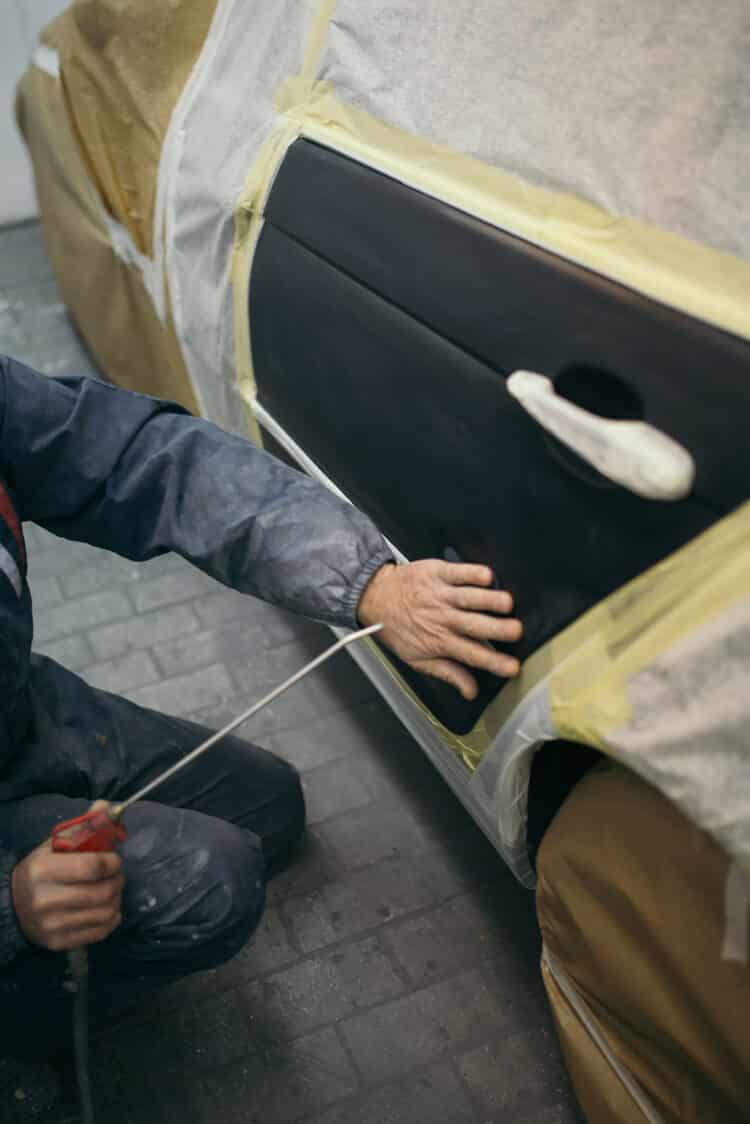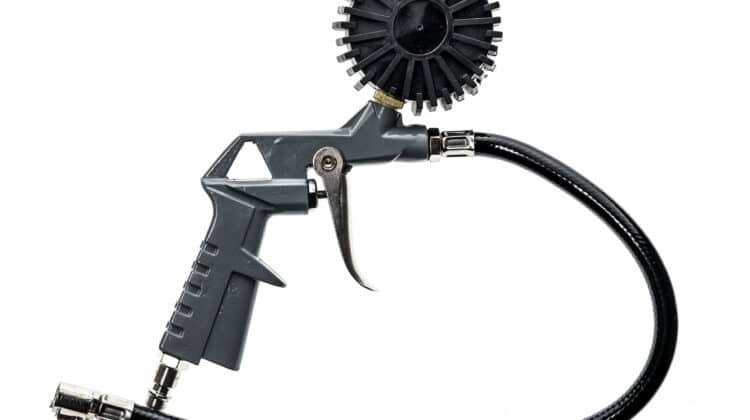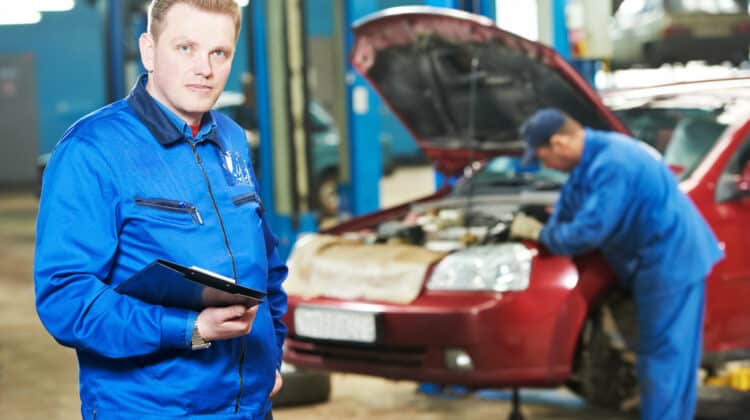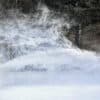
Is an air compressor dangerous?
An air compressor is a handy and useful tool around the house. However, if not properly utilized, it can be unsafe and lethal to the people in its immediate vicinity.
An air compressor cleaner can be regarded as a utilitarian tool. However, it is not exactly designed for that purpose. Yet, it is still common to clean dirt and debris from machinery, filters, clothes, and on any dusty surfaces.
The best thing that you can do is to be aware and learn about the dangers of compressed air so that you will know what to do and what not to do while using it.
Table of Contents
Compressor cleaner hazards
Can you die from compressed air?
There are dangers from compressed air on the skin. Pressurized air from commercial compressors like rotary screw types (direct-transmission mounted PTO driven, diesel driven, gas driven, etc.) can wield powerful forces.
Because of that, it can change ordinary objects found in the garage like washers, nuts, or bolts into deadly missiles.
These objects are turned to bullet fragments that can cause severe damage to anyone nearby. Even the smallest dust particles can hit the eye and cause blindness or can scrape your skin.
Even without its bullet-like capability, the pressurized air can still be dangerous on its own.
Compressor hazards in the human body
There are a lot of ways pressurized air can hurt the human body. When a powerful burst of compressed air comes into contact with any body part, something is bound to occur.
Here are some examples of bodily risks from improper use of compressed air:
- Whenever pressurized air is emitted, it lets out a high decibel noise that cannot cause harm if you are at a distance. But if it is expelled close to a person’s ear, it can result in permanent loss of hearing.
- If pressurized air can accidentally come into contact with a human being’s ears, there is also a possibility that compressed air in the mouth can occur. It can result in a burst of the intestines, lungs, and stomach./li>
- If a powerful burst of compressed air reaches a person’s body, it can get inside the bloodstream and goes through the blood vessels towards the brain. This situation can cause death if not treated immediately.
- If a strong spurt of pressurized air hits the navel even through many layers of clothes, it can expand and burst open the intestines.
- Even a small amount of pressurized air amounting to twelve PSI can do damage to a person’s eye and might even dislodge it from the socket.
- In scuba diving, pressurized air is utilized, and misuse of it can cause an air embolism. It occurs when air bubbles come goes inside a scuba diver’s bloodstream. The bubbles then cause damage by blocking arteries and blood vessels and can result in a coma, paralysis, and even death.
If air embolisms come from not following proper diving instructions, there is another danger of an embolism if pressurized air is improperly utilized at high pressure. While that rarely happens, high pressure can enter into a person’s bloodstream via any wounds and abrasions.
All the dangers mentioned above can be prevented from occurring if you do not utilize them for cleaning purposes. Maybe look for another more appropriate tool.
Look out for misuse
Most of the time, misusing pressurized air occurs when a worker cleans himself with a compressor. It should never happen because the skin can come into contact with the air nozzle.
Regular working pressure is at sixty to seventy PSI, and accidentally injecting that force into the body can incur disastrous results.
Vacuum cleaning
Instead of using an air compressor cleaner, why not use a vacuum cleaner instead? This suction device can get that dastardly dirt and debris from your entire workplace, its floors, draperies, upholstery, and other surfaces, even on clothing, without any possibility of injury.
If you still intend to use it despite all of its negative and potentially harmful attributes, be sure the pressure is under thirty PSI. A capable chip guard should be attached made of strong material.
To regulate the pressure, you should add a separate hose and regulator, along with a nozzle with a cone and tip.
Do not forget to wear PPE or personal protective equipment like a face shield, safety goggles, etc. If other people in the immediate surroundings, please let them wear protective gear as well.
Laws regarding compressor use
In the USA and Canada, there are laws made to regulate the use of pressurized air. In many situations, it is against the law to clean with it.
In the US, there are OSHA regulations for compressed air. OSHA (Occupational Safety and Health Administration) is a federal organization from the US Department of Labor that ensures the health and safety of workers by enforcing standards and provides education, training, outreach, and compliance.
The law specifically made regarding air compressor usage-to paraphrase-it prohibits its usage for cleaning purposes, except cutting down on pressurization to thirty PSI or pounds per square inch or lower. And to also use protective equipment.
In Canada, they have the CCOSHS or the Canadian Centre for Occupational Health and Safety. They have deemed as unlawful to use it as a cleaning tool.
The provinces of Saskatchewan, Alberta, Quebec, and the island of Prince Edward have particular laws about it. They have varied stipulations regarding not being utilized for cleaning machinery, clothes, workbenches, people, and many more.
In Northwest Territories, British Columbia, the Yukon, and Nunavut have federal regulations banning pressurized air in cleaning. It is because of the dangers it poses to the workers. Yet, there are stipulations for utilizing noise expelling nozzles that only have pressure below ten PSI.
In other places, there may be other applicable laws. So before this thinking about using pressurized air for cleaning purposes, check on your locality for pertinent information.
Conclusion
From all the potential dangers coming from cleaning with air compressors, will you still be using it? The risk is too high, so look for other means to do it, and live a long and productive life.





